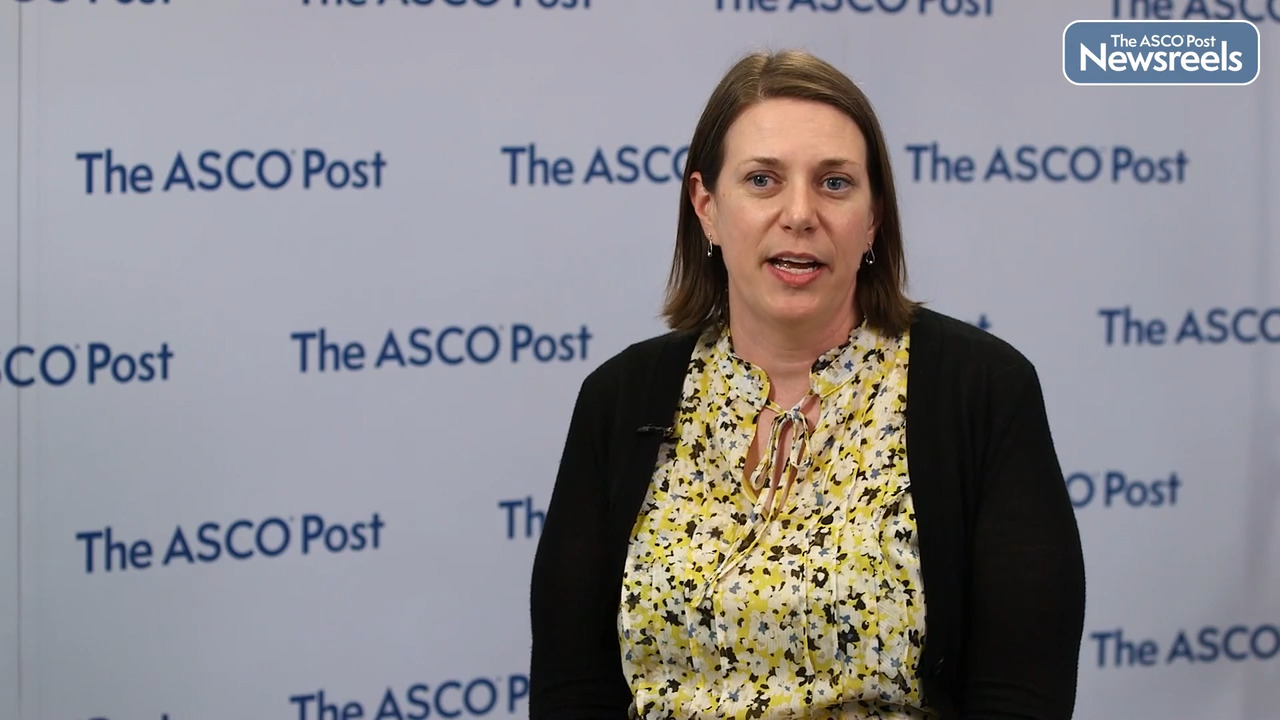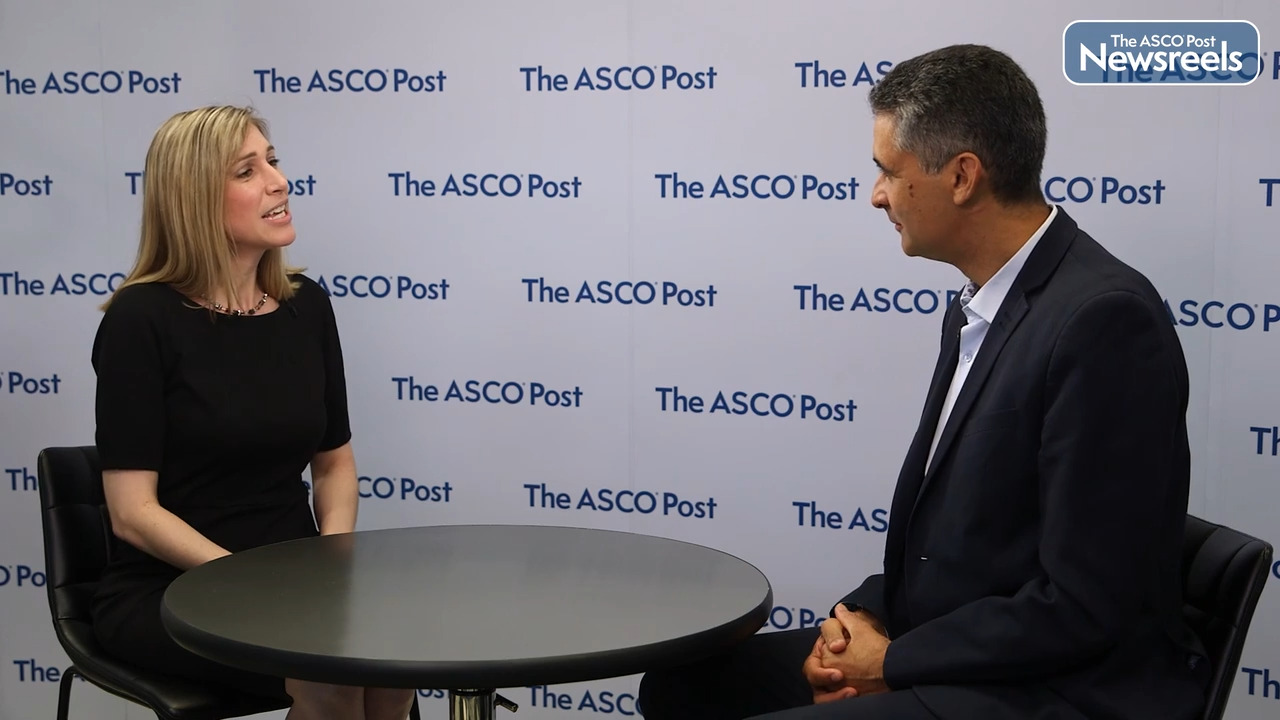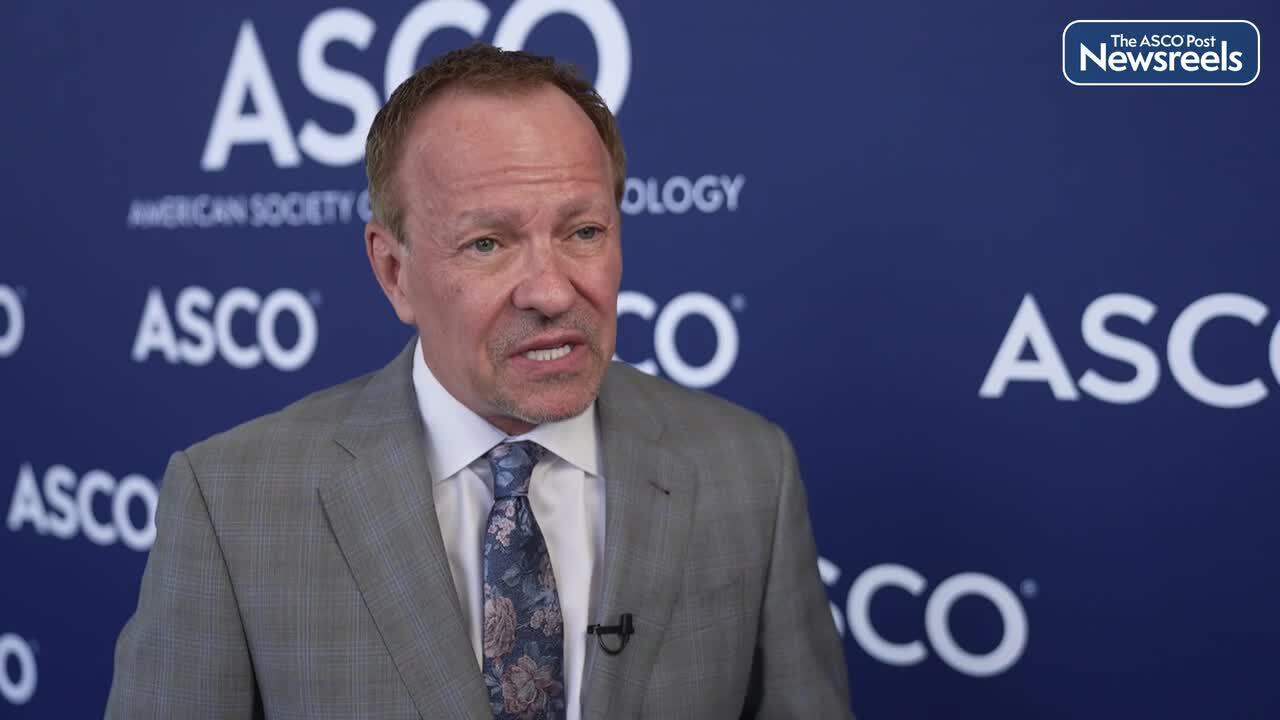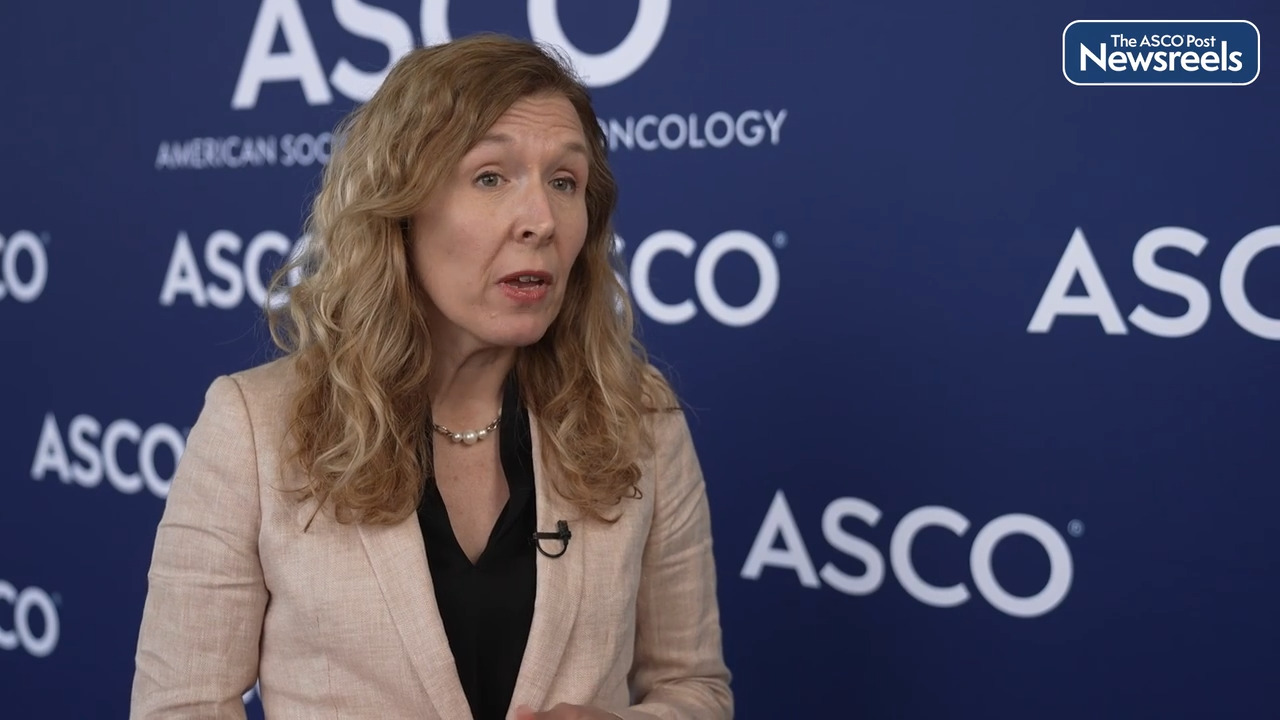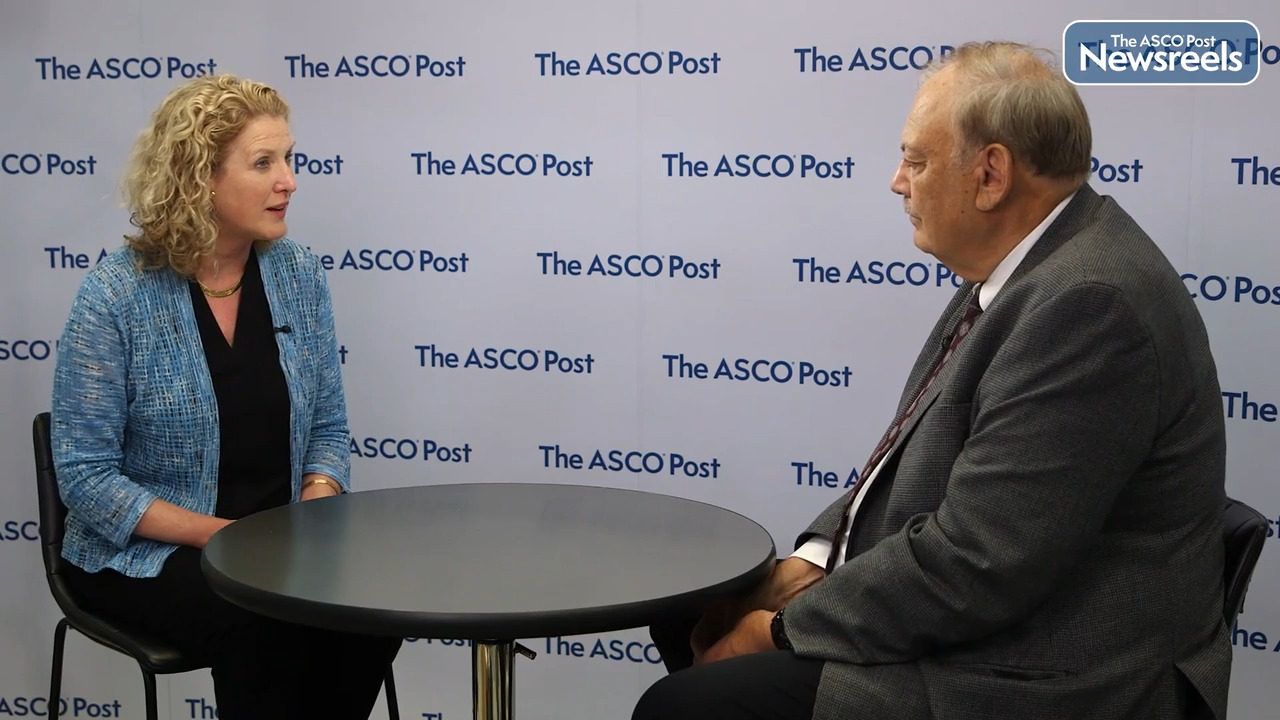James Chih-Hsin Yang, MD, PhD, on Metastatic Nonsquamous NSCLC: Evaluating Pemetrexed and Platinum With or Without Pembrolizumab
2023 ASCO Annual Meeting
James Chih-Hsin Yang, MD, PhD, of the National Taiwan University Hospital and National Taiwan University Cancer Center, discusses the latest data from the phase III KEYNOTE-789 study, which evaluated the efficacy and safety of pemetrexed plus platinum chemotherapy (carboplatin or cisplatin) with or without pembrolizumab in the treatment of adults with EGFR tyrosine kinase inhibitor–resistant, EGFR–mutated, metastatic nonsquamous non–small cell lung cancer (NSCLC) (Abstract LBA9000).
Transcript
Disclaimer: This video transcript has not been proofread or edited and may contain errors.
James Chih-Hsin Yang:
Patients who had EGFR mutation, stage four non-small cell lung cancer, the standard of care is tyrosine kinase inhibitors as a first line. When they fail, they have to receive chemotherapy as a standard of care. KEYNOTE-789 is a randomized phase three study, testing whether adding pembrolizumab to the standard chemotherapy is going to help overall survival and progression-free survival.
492 patients who are randomized into two arms. One, pembrolizumab plus end of care chemotherapy versus chemotherapy plus placebo. The co-primary endpoints were progression-free survival and overall survival. There were three interim analysis. Progression-free survival time were done at the interim analysis two.
The hazard ratio was 0.8, which nearly touched the statistical significant P value of boundary 0.0117 and therefore miss the endpoint. The overall survival endpoint was done at the interim analysis three, which was then final analysis 42 months after the last patient's randomized. The overall survival hazard ratio was 0.84, was also statistically not significant.
We also look at the pathological and clinical factors. We try to figure out whether patients with different characteristics can benefit from pembrolizumab adding to chemotherapy. Unfortunately, there was only one factor that seems to help these patients, which is PD-L1 status. Patients who had PD-L1 more than 1%, which is close to 50% of the population, the hazard ratio for overall survival was 0.77. Where those patients who did not have PD-L1 expression, their hazard ratio for overall survival was 0.91. So, we had a study that we cannot change the standard practice, yet the finding that PD-L1 status may help us to choose a patient when asked for future study.
Related Videos
The ASCO Post Staff
Jennifer A. Woyach, MD, of The Ohio State University Comprehensive Cancer Center, discusses results of a phase III study showing that progression-free survival with ibrutinib plus obinutuzumab plus venetoclax is not superior to ibrutinib plus obinutuzumab for treatment-naive older patients with chronic lymphocytic leukemia (CLL) in the setting of the COVID-19 pandemic. Long-term follow-up will determine whether there are advantages to obinutuzumab plus venetoclax, with special attention to measurable residual disease and therapy discontinuation (Abstract 7500).
The ASCO Post Staff
Alicia K. Morgans, MD, MPH, of Dana-Farber Cancer Institute, and Karim Fizazi, MD, of Institut Gustave Roussy, University of Paris-Saclay, discuss findings from the TALAPRO-2 study, which showed that talazoparib plus enzalutamide improved radiographic progression–free survival over standard-of-care enzalutamide as first-line treatment for patients with metastatic castration-resistant prostate cancer and HRR gene alterations. This regimen also delayed the time to deterioration in global health status and quality of life (Abstract 5004).
The ASCO Post Staff
Bradley J. Monk, MD, of the University of Arizona, Phoenix, and Creighton University, discusses phase III findings from the KEYNOTE-826 study of overall survival results in patients with persistent, recurrent, or metastatic cervical cancer. Study participants received first-line treatment of pembrolizumab plus chemotherapy, with or without bevacizumab, which reduced the risk of death by up to 40% in three different subsets of patients (Abstract 5500).
The ASCO Post Staff
Jennifer A. Ligibel, MD, of Dana-Farber Cancer Institute, discusses a telephone-based weight loss intervention that induced clinically meaningful weight loss in patients with breast cancer who had overweight and obesity, across demographic and tumor factors. Additional tailoring of the intervention may possibly enhance weight loss in Black and younger patients as well (Abstract 12001).
The ASCO Post Staff
Lisa A. Carey, MD, of the University of North Carolina at Chapel Hill, and Dennis J. Slamon, MD, PhD, of the University of California, Los Angeles, discuss phase III study findings on ribociclib plus endocrine therapy as adjuvant treatment in patients with hormone receptor–positive, HER2-negative early breast cancer. When added to standard-of-care endocrine therapy, ribociclib improved invasive disease–free survival with a well-tolerated safety profile (Abstract LBA500).
